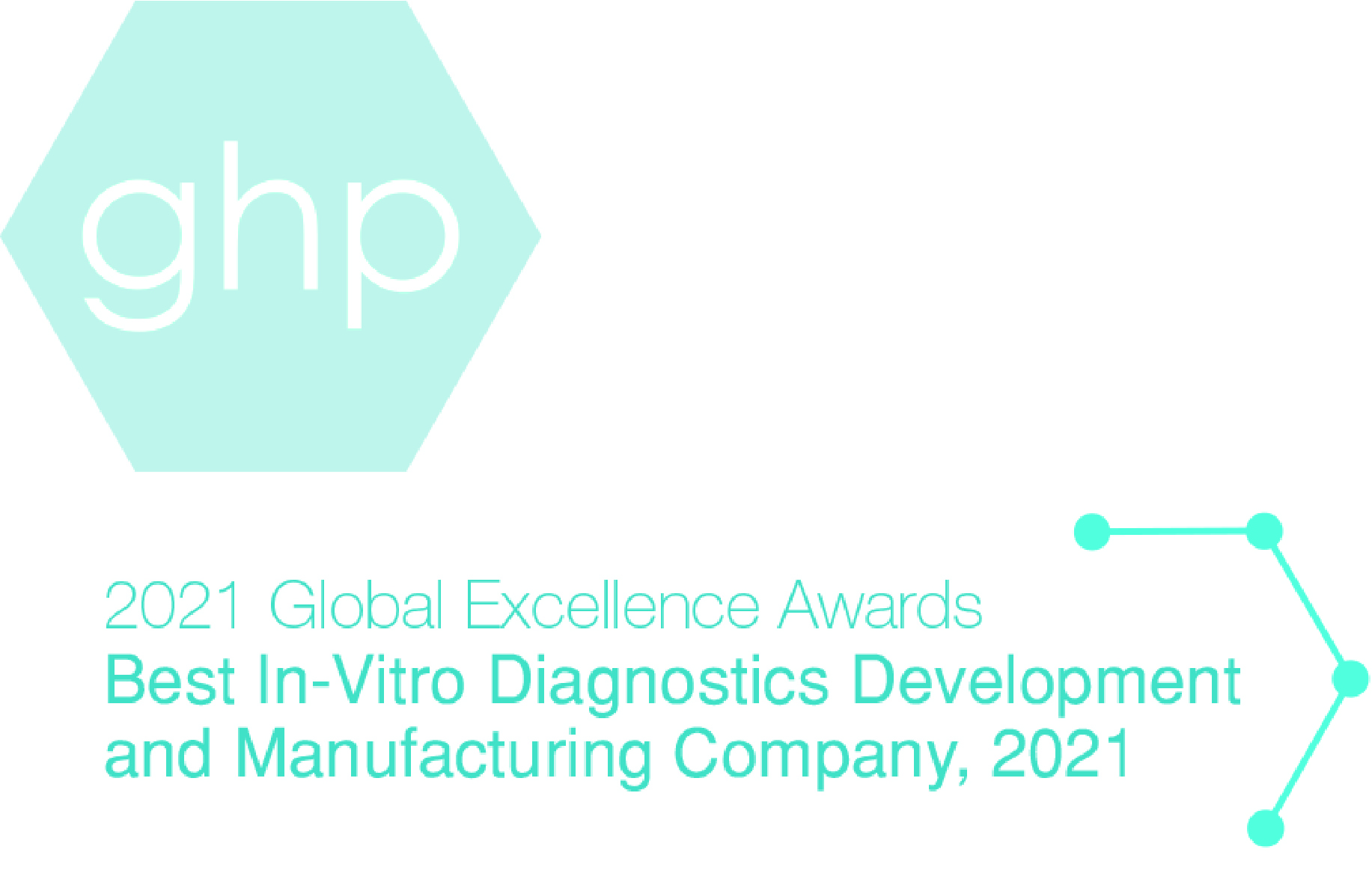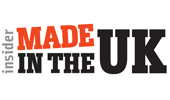
29 September, 2024
For World Heart Day 2024, Fortress Diagnostics met with Clare Caulfield, Founder and Chair of Braveheart's NI, to raise awareness around Congenital Heart Disease and the work the Bravehearts NI carries out.
Congenital Heart Disease and the Signs & Symptoms
Clare explained that "congenital heart disease, or CHD, is more common than everyone thinks. CHD is something you're born with and there are about nine in every thousand babies born in the UK with congenital heart disease. Roughly, the Royal Victoria Hospital, adult congenital heart disease team, which is only 11 years old, see around 5,000 patients a year and that's grown every year as the children transition into the adult services. In Northern Ireland, you transition into adult services when you are 14 cause your heart is fully grown. So the need for support is incredible and it's grown year and year and year."
"Heart disease has many, many different signs and symptoms and if you have CHD, a lot of those symptoms are completely different. When anybody says that they have a heart condition, usually people look at them and say, but you look fine, you're too young to have a heart condition or heart disease. They always expect it's going to be somebody who's geriatric or they're in their eighties.
But there are commonalities between any sort of cardiovascular disease, which would be you can have shortness of breath, but it could be blue lips, very grey pallor or very high flushed. You can have a racing heart rate or a heart rate that is very slow or you can have palpations.
Some of those things in isolation mean very little but when you have a lot of those symptoms at the same time and they are consistent and they stay with you, well then you need to seek help from that. Many people who have congenital heart disease don't even know it and you will hear about a lot of sports people who collapse on the pitch or they've had a heart attack in their only 20s and usually, you will find that they have an underlying congenital heart disease.
In women, heart disease can be masked, it can be masked through puberty, signs of puberty, it can be masked signs of menopause and females can often be dismissed."
She emphasised, "The one thing we would always say is you know yourself best. If something doesn't feel right you need to keep pushing until someone gives you answers of what that is."
The Inspiration behind Bravehearts NI
Clare shared with us that the inspiration for Braveheart's NI was her daughter, Shealyn.
"Shealyn was born at 28 weeks. She had her first open heart surgery when she was 10 months old. She had her second one when she was 6, and she had her third one when she was 14.
When she turned 14, Shealyn went into very severe heart failure. She spent many, many months in the Royal Hospital in Belfast, but there were no supporting services for teenagers. We only just found out that you had to transition into adult services at that stage in her life. The Adult Congenital Heart Disease team was only approaching a year old in Northern Ireland because our Congetital Heart disease children were starting to live longer so resources had to catch up to that.
When Shealyn went into severe heart failure, she had to have more open heart surgery to have mechanical valves and human donor valves transplanted in Birmingham and then when we returned here she remained very unwell. She then had to go to Newcastle to be assessed for a heart transplant. At the time Shealyn's mental health was incredibly bad and she had had this idea for a charity, for teenagers, because there were no resources in the Royal, teenagers and upwards and she said she would call it Brave Hearts."
Clare had no intention of ever starting this charity but as she watched her 14-year-old daughter suffer, discovering she hadn't taken any of her heart meds at home, the prospect of Bravehearts NI became a focus of hope and purpose.
"When I challenged her in this, I was incredibly upset because she was incredibly ill. I said to her, you are going to die and she said, Mum, I'm dying anyway. I couldn't believe that my 14-year-old daughter had actually said that to me.
So when she was critical and blue-lighted back to the hospital, while I watched her lay in that bed, giving up with no reason to live I said to her, "Shealyn, do you remember that idea you had for a charity?"
And she says, "Yeah, Brave Hearts."
I said, "Why don't we do it?"
And she said, "Do you think we can, Mummy?"
And I said, "Why don't we do it? Let's do it."
I said, get your pen and pencil there and we'll get some notes down and we'll figure it all out."
Bravehearts NI is now 10 years old and is going from strength to strength because it's so desperately needed in Northern Ireland.
Braveheart's NI is a 100% volunteer charity. Clare clarified, "we don't pay any salaries, and we don't have any premises, in fact, everything is usually done from my kitchen table. So every penny that we raise and every penny that's donated to us goes where it's needed. It helps our brave hearts that we support. You become a brave heart when you're 14 and we support you into adulthood and your family on your journey to be able to support you to be the best version of who you can be."
How Bravehearts NI supports families across Northern Ireland
Bravehearts NI supports families across Northern Ireland in a range of incredible ways tailored to the needs of each family. As Clare explained, "Every family may be on the same road but they're on a different journey, so we work with the families to see how can we support" them.
"An awful lot of those times when families get in touch with us initially, it's because they're in the hospital in a trauma situation and they may have landed in the hospital and they've no toiletries with them so we provide toiletries bags, we give them money that they can pay their parking, maybe some petrol, get them a bite to eat in the canteen. Or if they're having to go to England, we support them financially as well, and we also help look after the family that may be left at home, other siblings or children, whatever that case may be.
We also look at the family as a whole, because living with congenital heart disease can be incredibly isolating, and the child as they go through their school days they probably miss an awful lot of school, they can be quite poorly, they can be at home or they have a lot of hospital stays. So we work with the family as well on how we break down that isolation and actually bring that nucleus all together again.
We might give them paddleboards on wetsuits to be able to go out in the summertime and do things together. We have paid for family memberships at the local leisure centre so they can swim together. We even send them walking shoes so they can go out walking or hiking together.
We also look at counselling. Our Bravehearts, as they reach their teenage years, start thinking about their own mortality. That can be very frightening, they don't know what's in the future for them and usually their medical team don't know what's in the future for them either. But we're trying to promote inclusivity, we break down isolation and we really promote positivity."
The importance of positivity and her passion for the work Bravehearts NI carries out is clear to see when speaking with Clare.
"We say to them, your CHD doesn't define you, you may have been told you can't do this, this and this, but you know what, sometimes just have a go. Maybe you don't even want to do it anyway and we'll find something that does interest you.
We get all our brave hearts together and one of the most incredible things about Brave Hearts NI is it's actually run by the Brave Hearts themselves. It gives them a sense of identity purpose and belonging.
And the positivity is incredible in the way they support each other and we support the families as well. There's a mountain of things that we do but an awful lot of things that we do are very, very personal to that family's journey. Bravehearts NI is about positivity it's about looking forward, it's about who you are and making the best of the life you have. "
The Impact of CHD on daily life
Clare went on to tell us how congenital heart disease can impact the daily life of those affected by it.
"They can be very, very exhausted. The wider public doesn't understand heart disease, congenital heart disease, is a hidden disability. And how our Bravehearts can be spoken to sometimes can be quite cruel. When they have to tell an employer, they dread it because the employer says "You look fine, there's not much wrong with you." The hidden disability side of things, it can be can be very cruel with how people respond to our brave hearts.
There is a huge disparity in educational attainment because our brave hearts from their children that they miss an awful lot of school and they also worry that employers would not want to employ them and that becomes a huge issue.
It also becomes a real issue for their mental health as they get into their teenage years and adults whenever they see that there are restrictions on their lives."
Clare used the Spoon Analogy to explain how congenital heart disease affects an individual.
"It explains that when you wake in the morning, everyone has 12 spoons. So someone like me, who has nothing wrong with them, might only use 4 or 5 spoons that day and then they go to bed and they sleep and then they wake up the next morning and they have another 12 spoons of energy for that day. Someone with congenital heart disease will have 12 spoons when they wake up in the morning but they use 3 of them getting dressed and then 4 of them getting to school, they use 2 of them having to walk up to the canteen or they use 3 of them going to work. Then they come home and they have to make dinner and that's another spoon, get ready for bed, maybe have a shower, another spoon. If they have children, another spoon. So this is how it's used up and then the next morning and they might only have 4 spoons of energy that morning and they have to do that exact same day with that amount of spoons and then the next day they might have 6 spoons and the next day they might have 10 and they use all 10 of them but the day after that they've only two and they have to do the exact same day with only two spoons.
So congenital heart disease is a hidden disability that needs to be recognised better as a hidden disability, but what Brave Hearts NI do is we tell our brave hearts and we support our brave hearts in their abilities and what life can give to them and what they can give to life and society and their community and to the fellow Braveheart's."
Maintaining a Healthy Heart Lifestyle
When asked how to maintain a healthy heart lifestyle, Clare explained that "it's always best to work towards maintaining a healthy heart lifestyle, whether you have congenital heart disease or not.
So you would always be looking at your diet. Please try to reduce your salt intake your sugar intake and your processed food. So always have fresh fruit and vegetables, I know the cost of living at the minute is difficult and that can often be hard. So you can look at things that are very simple in your lifestyle, get out walking, get fresh air and do not take smoking up or please stop smoking. If you are a teenager, no vaping, you must preserve what you have. Look at the very basics, a healthy heart, walking and exercise, swimming is a fantastic one, and eating a bit better."
Clare went on to speak about heart disease treatments and how, although they vary between congenital heart disease and cardiovascular and coronary disease, there are commonalities.
"You can have beta blockers, you can be actually prescribed exercise and you can do that through your GP who can give you a GP referral to your local leisure centre if it's Council Run and you get free access to the swimming pool and to the gym.
For congenital heart disease patients and an awful lot of coroner disease patients, there are many heart failure meds and that's the heart failure team will work with an individual to actually ascertain what works best for you.
My daughter, Shealyn, was assessed for a heart transplant 11 years ago and they thought she would need one within two years. She worked with the heart failure team and she's about to turn 26. So they invent something new every single week. They're incredible. So always trust your cardiologist. They know what's best."
Research and News for the year ahead
Clare was positive about the research on congenital heart disease, sharing the it is "consistently and continuously updated and it's fantastic.
Whenever my sister who has congenital heart disease, is about to turn 59, she was the first child in the British eyes to live through her open heart surgery back in the late 60s.
So she was always told that no exercise. My daughter was always told no exercise as children. You know, walking and just very very gentle things. All that's changed now.
Now exercise has become a very integral part of your journey with congenital heart disease. Now it will vary for everyone. Some can just walk and walk a small distance but they still do it and it's encouraging them to do it. Swimming is fantastic. Unless you're told you're not to swim, swimming, there's nothing better.
There are two amazing things that are happening this year in Northern Ireland. My daughter, who has had three open heart surgeries; and Her valves are all leaking. Now that we can offset the heart transplant for another bit, there's actually a possibility of replacing one of her valves via Keyhole which is huge because it just takes a recovery down for months and months, down to weeks, and it would be incredible.
But the most exciting thing we have this year is that Brave Hearts NI are raising funds to send one of our doctors, our congenital heart disease doctors in the Royal over to Scotland for a year to train under one of the best consultants in Europe really in maternity services.
Our female Brave Hearts were always discouraged from becoming mummies. Maternity was always something that they were told was not going to happen because we don't know the pressure that would put in your heart but now everything's progressing and it's wonderful. Dr Brona Kelly is being able to go by Brave Hearts NI funding them, to Scotland to do this training for obstetrics and maternity, which means it opens up a whole new world of possibilities to our female brave hearts."








